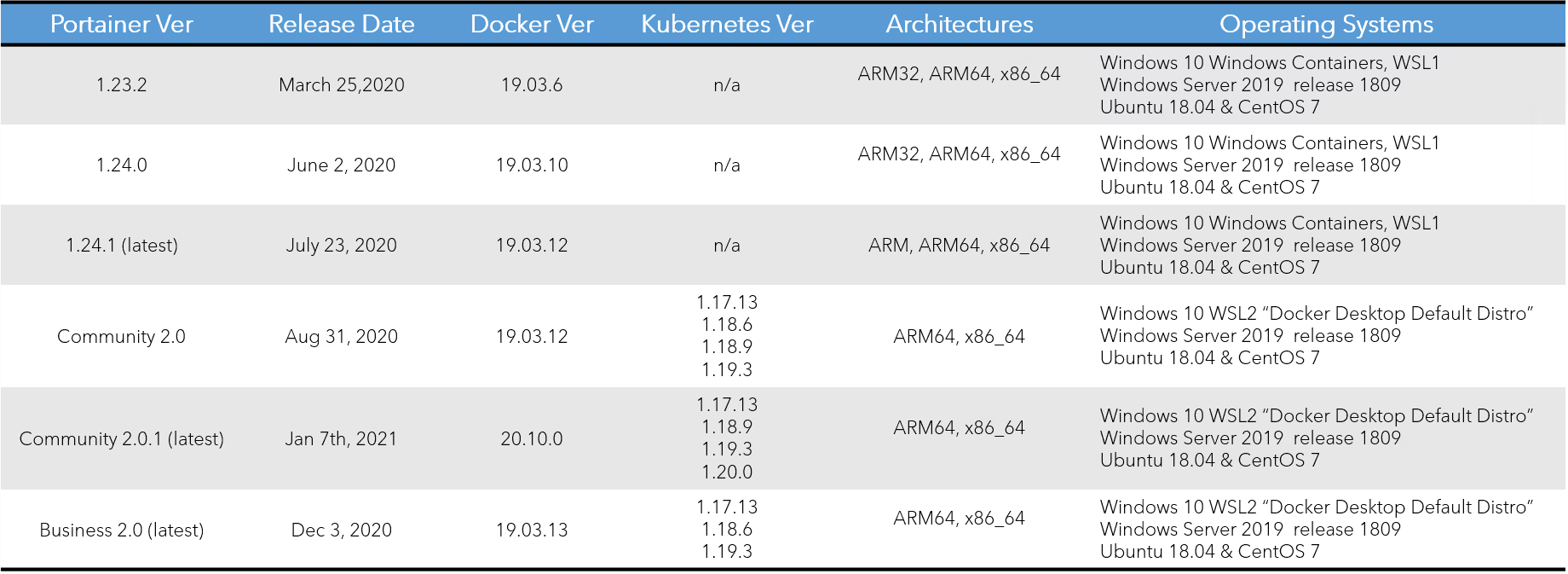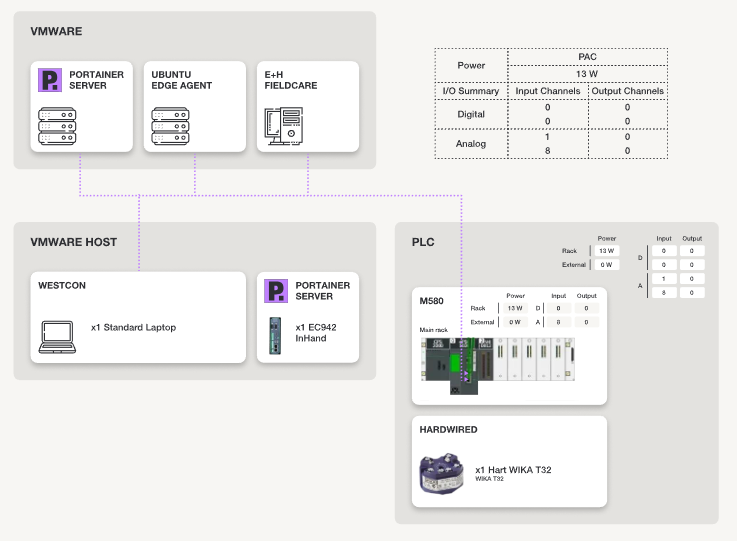This blog today serves an important purpose; it is setting expectations in regards to underlying software and hardware versions that we test our releases against, and how this may impact you.
Through our community channels, we are often asked, "is XYZ supported by Portainer", or "is latest version of Portainer supported on my version of Docker, or "does Portainer work with XYZ Kubernetes version".
As most of our users are aware, Portainer CE is a community supported product, and there is no formal support from Portainer.io for the CE version (Portainer Business includes formal support). Yes we do monitor our social channels, and we are active in managing reported issues/bugs/feature requests in our github repo; but this should not imply any level of formal support, nor should there be any expectations of a response SLA or that we will create a bugfix for a reported issue. Community support means just that, community supported.
As an aside, see this blog for how we prioritize fixing reported bugs and adding requested features - https://www.portainer.io/blog/portainer-2.0-and-the-development-balancing-act
All the above being said; every single release of Portainer goes through an extensive testing process (functional tests, release tests, post release tests) to ensure that what we are creating actually works as expected. Obviously though, we cannot possibly test Portainer against every single configuration variant out there, so we have elected to test against just a subset.
To try and alleviate confusion as to what we test against, we have elected to document this below; these configurations are the only configurations that we personally validate as "functional"; any other variant is not tested (this does not mean it wont work, it just means its not tested). If you report a bug for a configuration that is not on the list below, we will ask you to first update your environment to match a validated configuration before continuing.

There are often genuine reasons why users are unable to upgrade their Docker or Kubernetes Versions, and in these cases, we recommend you remain on an older version of Portainer, or if you do upgrade, be aware that you are in uncharted waters. Also note that as hardware ages (eg ARM), we are dropping it from our testing, favoring only the more modern ARM64 variant. Again, if you run ARM hardware, the latest versions of Portainer should work, but these are untested.
Remember, this is not a statement of what we will build container images for; we will continue to build images for Linux/ARM, Linux/ARM64, Linux/AMD64, Linux/PPC64le, Windows1809/AMD64; however these are purely automated builds.
Hopefully this helps you to understand what we test against, and what we dont; and helps you understand if we push back on a request for help if you are using a variant we have not tested.





